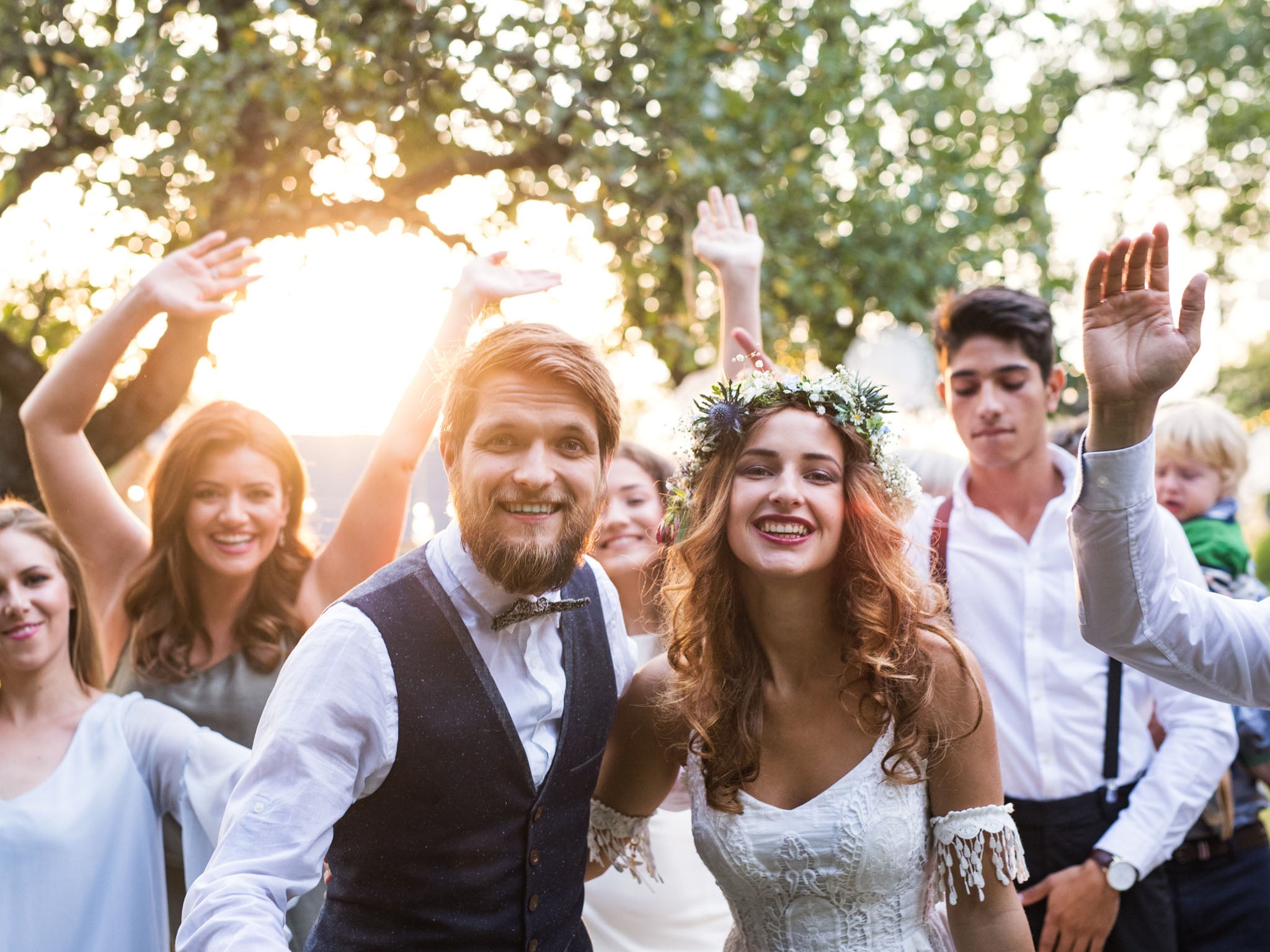Humanist weddings rise by 266 per cent across England and Wales
Couples opt for non-religious ceremonies despite fact they're not legally recognised

Your support helps us to tell the story
From reproductive rights to climate change to Big Tech, The Independent is on the ground when the story is developing. Whether it's investigating the financials of Elon Musk's pro-Trump PAC or producing our latest documentary, 'The A Word', which shines a light on the American women fighting for reproductive rights, we know how important it is to parse out the facts from the messaging.
At such a critical moment in US history, we need reporters on the ground. Your donation allows us to keep sending journalists to speak to both sides of the story.
The Independent is trusted by Americans across the entire political spectrum. And unlike many other quality news outlets, we choose not to lock Americans out of our reporting and analysis with paywalls. We believe quality journalism should be available to everyone, paid for by those who can afford it.
Your support makes all the difference.They are weddings that are, officially speaking, not even legally recognised.
But such a small detail, it seems, is not stopping increasing numbers of couples from opting for humanist marriage ceremonies across England and Wales.
Such weddings have risen by more than 250 per cent in the last 15 years, according to new figures from the Office for National Statistics.
The massive rise makes it the fastest growing type of wedding in the country – and comes as the number of faith-based ceremonies fell in the same period.
While humanist weddings went up 266 per cent between 2004 and 2016, Church of England weddings fell by 28 per cent, Catholic by 34 per cent and Baptist by 42 per cent.
The rise – from 287 such ceremonies to 1,051 – comes despite the fact that humanist marriages are classed as atheist or agnostic, and are therefore not officially recognised in England and Wales.
Couples who have one must also go through an “official” process at a registry office either before or after.
But the new figures look set to add weight to campaigners who have long-called for humanist marriages to be recognised in England and Wales, as they already are in Scotland and Northern Ireland.
“We knew from the huge popularity of our funerals that there was enormous public appetite for humanist ceremonies but the scale of the demand for weddings, especially in the last 15 years, has blown us away," Andrew Copson, chief executive of Humanists UK, told The Guardian.
“In a way it is a demonstration of what we know about today’s society – many people are humanist in their approach to life without knowing the word."
He added: "They’re not religious but they want a ceremony at one of the most important moments in their lives that reflects the positive beliefs and values they hold.”
Join our commenting forum
Join thought-provoking conversations, follow other Independent readers and see their replies
Comments